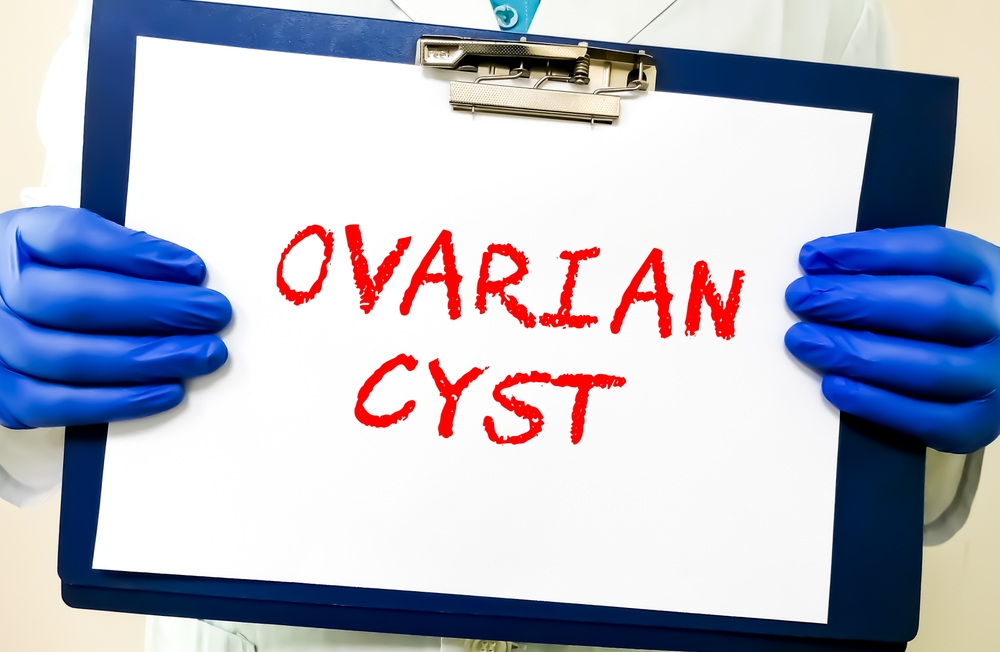
Overview
The ovaries are two almond-shaped organs in the female reproductive system – one on each side of the womb (uterus). An ovarian cyst is a fluid-filled sac that develops on an ovary.
Ovarian cysts may affect both ovaries simultaneously, or they may only affect one of them. Most ovarian cysts occur naturally and go away in a few months without treatment. However, complications can occur if they do not naturally resolve. It is a prevalent condition, with about 1.6 million cases annually in Nigeria.
Key facts
- Most ovarian cysts occur naturally and go away in a few months
- An ovarian cyst may go away without needing treatment.
- Heavy, irregular, or lighter periods than usual are possible symptoms.
- Surgical treatment to remove the cysts may be needed if they are large
Symptoms & Diagnosis
Symptoms
An ovarian cyst usually only causes symptoms if it ruptures. When this happens, the following symptoms can be experienced::
- Pelvic pain – this can range from a dull, heavy sensation to a sudden, severe and sharp pain
- Heavy, irregular periods or lighter periods than normal
- Bloating and a swollen tummy
- Feeling very full after only eating a little
- Pain during sex
- Difficulty emptying your bowels
- A frequent need to urinate
Diagnosis
If a doctor thinks you may have an ovarian cyst, you will probably have an ultrasound scan which uses a probe placed inside your vagina. If a cyst is identified during the ultrasound scan, you will likely have a repeat ultrasound scan in a few weeks to monitor it.
Causes & Prevention
Causes
There are different types of cysts, including functional and pathological cysts. Functional cysts are common, normally non-cancerous and harmless, and related to menstrual cycles. Pathological cysts are caused by abnormal cell growth but are also usually non-cancerous. In some cases, ovarian cysts are caused by an underlying condition, such as endometriosis or polycystic ovary syndrome (PCOS).
Prevention
Ovarian cysts cannot be prevented. However, routine gynaecological examinations can help detect ovarian cysts early. Benign ovarian cysts do not become cancerous. If you are concerned about changes in your menstrual cycle, ongoing pelvic pain, loss of appetite, unexplained weight loss, and abdominal fullness, let your doctor know so they can investigate.
Treatments
Most ovarian cysts do not cause symptoms, and many go away on their own. However, if they don’t, treatments include watchful waiting, medications (contraceptive pills) or surgery (laparoscopic), particularly for large cysts.
Treatment will also depend on size and appearance, whether you have any symptoms or have been through menopause.
Conclusion
Most ovarian cysts occur naturally and go away on their own. Regular gynaecological exams can help ensure that they are identified early.
MOST COMMON






